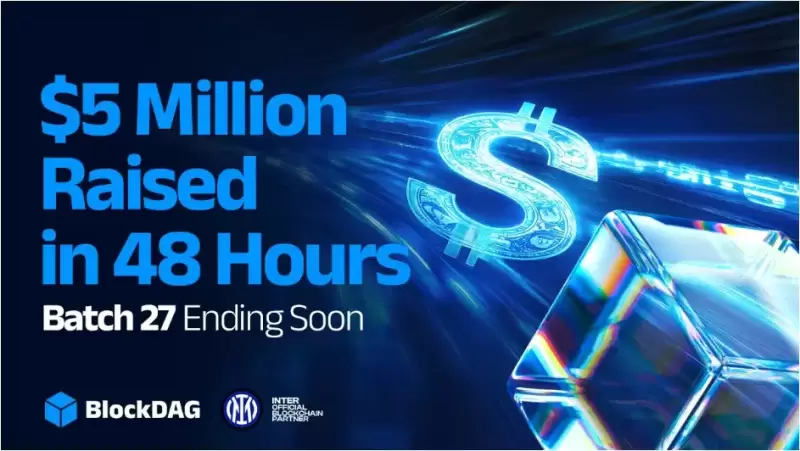 |
|
 |
|
 |
|
 |
|
 |
|
 |
|
 |
|
 |
|
 |
|
 |
|
 |
|
 |
|
 |
|
 |
|
 |
|
Cryptocurrency News Articles
Lido's Reign Unraveled: Ethereum Staking Market Sees Rivalry Surge
Apr 23, 2024 at 10:03 pm
Ethereum staking market dynamics are shifting amidst the emergence of new protocols and liquid restaking services. Lido's market share has declined to 28%, marking a two-year low, while rivals like EigenLayer and liquid restaking protocols gain traction. With over $2.5 billion in Ether withdrawn from Lido in the past month, its dominance faces threats from decentralization advocates who have long expressed concerns over its potential control over Ethereum.

Lido's Dominance in Ethereum Staking Market Wanes Amidst Rise of Rivals
New York, April 25, 2023 - Lido Finance, the largest decentralized finance (DeFi) protocol for Ethereum staking, has seen its market share decline to 28%, a significant drop from its peak of over 32% in November 2022. This decline comes amidst the emergence of new liquid staking protocols and the increasing popularity of EigenLayer, a protocol that offers a more efficient method of staking.
According to data from DefiLlama, since March 1st, investors have withdrawn approximately 800,000 Ether (ETH), worth around $2.5 billion, from Lido. This represents the largest outflow of ETH from any staking service in the past 30 days. As a result, Lido's market share has fallen from approximately 32% in November to just under 29%.
The decline in Lido's market share has raised concerns among proponents of decentralization, who have long warned that Lido's dominance could lead to eventual control of Ethereum itself if left unchecked. Since September 2022, Ethereum has utilized proof-of-stake (PoS) consensus, where users stake their ETH to validate transactions and earn rewards.
In the PoS model, Lido plays a major role as a liquid staking protocol, allowing users to stake their ETH without having to run their own node. However, critics have argued that Lido's size and influence could potentially compromise the decentralization of the Ethereum network.
The decline in Lido's market dominance appears to be part of a broader shift in the Ethereum staking market. Liquid staking protocols, which offer flexibility and convenience to users, now account for less than a third of all staked ETH, according to data compiled by pseudonymous data analyst Hildobby.
Meanwhile, centralized exchanges, which also offer staking services, have also seen their market share decline from 30% to 25% since November. In contrast, liquid restaking protocols, such as EigenLayer, are gaining popularity, now accounting for over 6% of all staked ETH.
EigenLayer, launched in 2022, provides users with a more efficient method of staking, enabling them to earn rewards on their previously staked ETH. The surge in deposits into EigenLayer has contributed to the decline in ETH deposits to Lido.
The decline in Lido's market share is also accompanied by a rise in the number of "unidentified" stakers, who are not affiliated with liquid staking protocols, centralized exchanges, or institutional stake pools. This group of stakers now accounts for over 18% of all staked ETH, up from around 15% six months ago.
In response to the changing market dynamics, Lido has implemented several changes. The protocol recently welcomed solo stakers in an effort to enhance its decentralization. Additionally, Lido DAO, the cooperative that governs the protocol, is currently voting on a proposal that would give stETH holders a greater say in the protocol's governance and allow stakers to "rage-quit" the protocol if they are unhappy with its operation.
"Even if the protocol is failing, users can still permissionlessly exit with their funds intact, and there's nothing token holders can do about it," Lido said in a blog post announcing the vote. "This is something that is truly new to financial markets and infrastructure. Something that is only made possible by the non-custodial nature of on-chain DeFi."
Conclusion
The decline in Lido's market share highlights the evolving nature of the Ethereum staking market. The emergence of new liquid staking protocols, the popularity of EigenLayer, and the increase in unidentified stakers indicate a shift towards a more diversified staking landscape. While Lido remains a major player in the market, it faces increasing competition from rivals offering alternative staking solutions. The long-term impact of these changes on Lido and the Ethereum network as a whole remains to be seen.
Disclaimer:info@kdj.com
The information provided is not trading advice. kdj.com does not assume any responsibility for any investments made based on the information provided in this article. Cryptocurrencies are highly volatile and it is highly recommended that you invest with caution after thorough research!
If you believe that the content used on this website infringes your copyright, please contact us immediately (info@kdj.com) and we will delete it promptly.




























































![Bitcoin [BTC] Exchange Outflows Spike as Over 20,000 BTC Move to Market Bitcoin [BTC] Exchange Outflows Spike as Over 20,000 BTC Move to Market](/uploads/2025/04/03/cryptocurrencies-news/articles/bitcoin-btc-exchange-outflows-spike-btc-move-market/middle_800_480.webp)